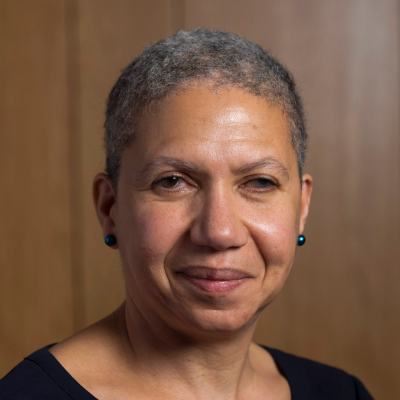
ISC service(s) or programs/projects: Support for PennKey, Two-Step Verification, IAM services; Future of Work team
Length of time in ISC: Joined ISC and Penn in 1987 at Computing Resource Center (CRC), then worked for Penn’s College Houses & Academic Services (CHAS) from 1997-2015. Returned to ISC in 2015.
Previous work experience: ISC’s CRC was my first grown-up job!
Tell us about a challenge at Penn that made you proud to be part of ISC.
Supporting clients with their PennKeys at the beginning of the school year is challenging… and rewarding! People have questions about how to set up and use their PennKeys, and all of us in Client Care pull together and strive to provide our clients with excellent service. It’s all hands on deck. We’re the first computing support contact many people have at the University, so we try hard to make sure they get the help they need, and that they understand more about Penn’s complex technical environment.
What’s an interesting technical or business problem you’ve faced with ISC?
It has to be the work we’ve done with other ISC groups in developing and supporting Two-Step Verification. That project involved so many groups to make sure that the service worked successfully: technical aspects, interface design, communications to make sure clients understood how it worked, figuring out how folks would get help and support. It was important because Two-Step helps everyone secure their PennKey, which protects their data as well as the University’s data. It was complex because it impacts a lot of resources and services that people use every day.
What do you like best about working with clients?
I really enjoy working with people from all areas of Penn. It’s fascinating to talk to them and hear a little bit about their work and their lives. I might be helping an alum who attended the University 40 years ago, and then be speaking someone for whom it’s literally their first day at Penn. It’s great working with my colleagues in Client Care because we all work hard to support each other. Penn is so decentralized that every School and Center works a bit differently — it’s fun seeing that, and helping them help their clients. We try to accommodate them and help them in the way they’d like to be helped.
What lasting effects did the pandemic have on your role and your work?
One of the ways the pandemic has changed things is that the use of technologies like Microsoft Teams has actually increased the amount of collaboration within our group. We’ve been very intentional about making sure that we collaborate with each other effectively.
What do you appreciate most about the time you spend on campus?
What I really enjoy about being on campus is running into coworkers and colleagues on Locust Walk. I also like the excellent food trucks that are still around on campus. I enjoy walking from 30th Street Station to campus to the office every morning and back when the day is over — I enjoy my commute, even in bad weather. When it’s cold, it makes me appreciate being in a warm office. And when it’s hot, it makes me appreciate the sun and breeze on my skin.
What are you passionate about in your free time?
I have a Master’s in English Language and Literature, and have always been a passionate reader. During the pandemic I started listening to audiobooks, and developed a serious history addiction. Which is kind of odd, because I never liked history when I was an undergrad. Recently I’ve been listening to books on World War II — all sorts of aspects, especially the war in the Pacific and in North Africa and the Middle East. Turns out it’s not boring, it’s fascinating! It was a global conflict, so if you have a field of interest, there’s probably a WWII-related book on that subject.
What would you like people at Penn to know about you?
I’m a certified instructor in meditation. I was trained in a secular version of the Tibetan tradition. I’ve also trained with Penn’s Mindfulness-Based Stress Reduction program. Penn has wonderful resources if you want to learn more about mindfulness and meditation.